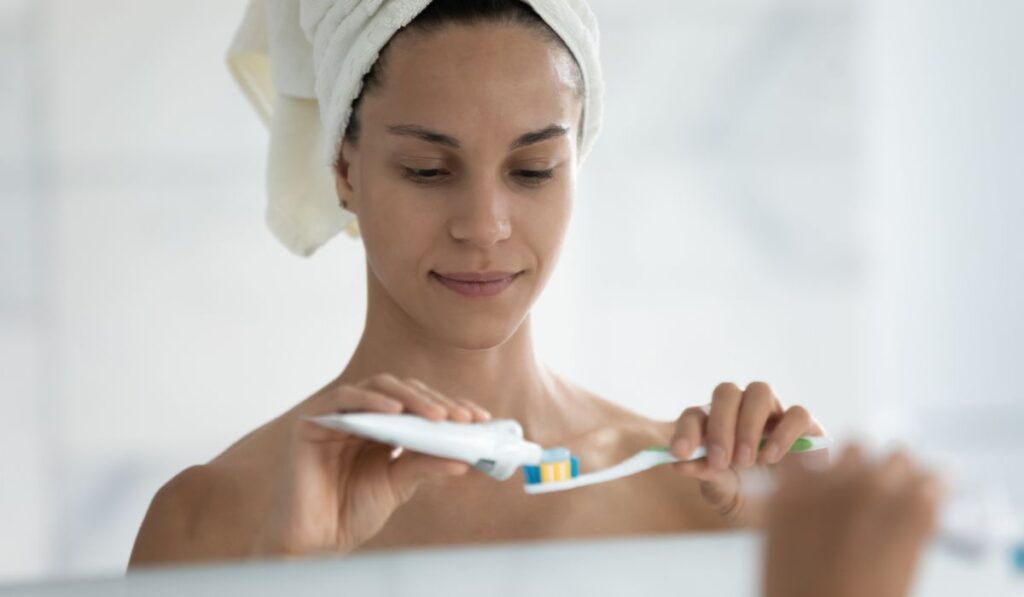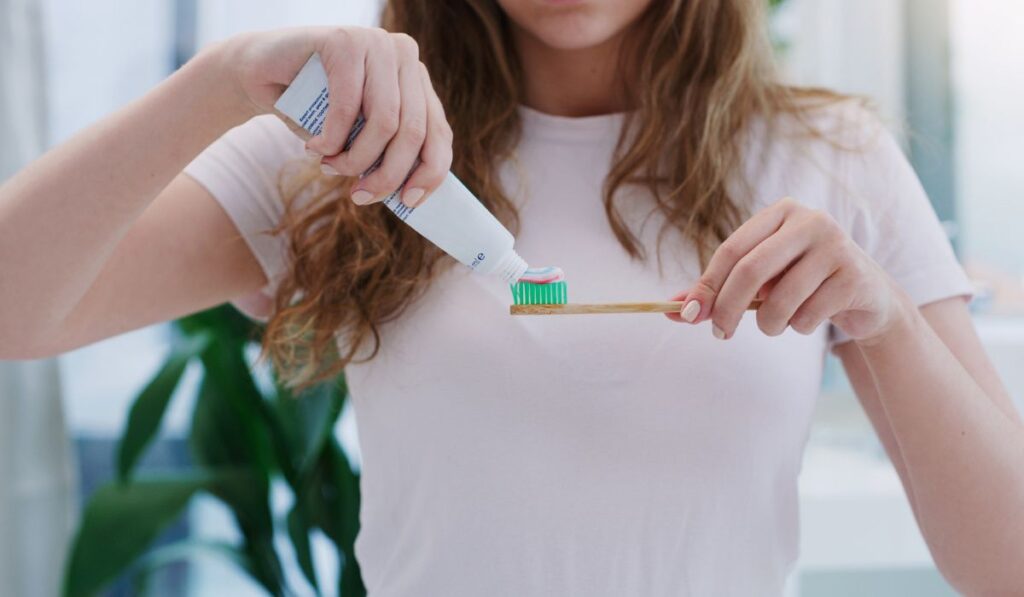A brighter smile begins with a habit of regularly brushing your teeth. For many of us, the fresh and minty feel of toothpaste is a common motivation to get ourselves to brush our teeth when even sleepy in the morning and before going to bed at night. But is it really essential to use toothpaste to brush your teeth?
Toothpaste is not an absolute necessity to brush one’s teeth. It is the act of brushing and flossing regularly and properly that contributes to good oral health, not necessarily the toothpaste that one uses. There are even simpler and more effective ways to clean teeth than using toothpaste.
So if not toothpaste, what else is there to help clean our teeth and prevent tooth decay? Let’s look at reasons why you don’t need to use toothpaste in the first place, the ways you can clean teeth without it, and the benefits of going without.
Do You Really Need to Use Toothpaste?

Toothpaste is not an absolute necessity for you to clean your mouth and maintain good oral health in the long term. The purpose of brushing your teeth is to prevent tooth decay and gum disease by removing plaque or the layers of bacteria that start coating the teeth if they are not regularly cleaned and removed.
Toothpaste makes the process of brushing teeth more pleasant and easier, but it is the bristles of your toothbrush and the act of brushing that removes any plaque buildup. This is why your risk of tooth decay does not get reduced by simply applying toothpaste to your teeth without brushing.
In fact, brushing itself is not enough to properly clean your mouth and prevent tooth decay. You should also floss your teeth at least once a day to remove any lingering food and interdental plaque that cannot be removed by just brushing, without toothpaste.
How Can You Clean Your Teeth Without Toothpaste?
Simply using a toothbrush that is moistened or softened with water is enough to clean your teeth. Holding your brush at a 45-degree angle to your gum line helps make it easier to reach all the corners and surfaces of your gums and teeth when you brush.
You may have to take a little more time than usual to properly and carefully clean your teeth, gums, and tongue when you do not use toothpaste or a similar agent when you brush.
A water jet flossing device is a great way to increase the efficacy of your teeth cleaning when you do not use toothpaste. It is easier than traditional flossing and helps remove food particles from your teeth that are difficult to remove with just brushing.
Why Might You Want to Use Toothpaste?
The main reason for using toothpaste is to make brushing your teeth a more pleasant experience. The different scents and flavors they come in make them taste and feel great. Many kinds of toothpaste also have a special mint flavor that offers a tingling fresh sensation and an easy way to prevent bad breath.
Prolonging the time that your mouth feels clean after brushing and the cooling effect that it gives often helps motivate us to brush regularly, rather than cleaning teeth without any freshening agent.
Toothpaste also provides better lubrication, making it easier to move your toothbrush on the surfaces in your oral cavity.
The fluoride present in toothpaste is a major reason why it’s considered a crucial component of good oral hygiene. While the water that we drink naturally contains some fluoride, it is often not enough to make a significant impact on tooth decay.
Fluoride helps create a protective barrier for the enamel of your teeth, reducing and repairing damage caused by the acids produced by harmful bacteria growing in your mouth.
When applied on the surface of your teeth, fluoride helps resist tooth decay caused by these acids, and it actively increases the buildup of healthy minerals in your enamel. It can prevent any further decay from happening and also even reverse mild cavities in their early stages.
There are some concerns about the negative effects of using fluoride toothpaste. Ingesting fluoride can cause irritations in the stomach, and children ages eight and under are at risk of developing dental fluorosis when overexposed to high concentrations of fluoride.
That said, you can use toothpaste without or without fluoride in it according to your preference. If you do use toothpaste with fluoride, the proper concentration of fluoride is at least 1,350 ppm for it to be effective. If your teeth require a higher concentration of fluoride, your dentist will inform you accordingly.
Children under the age of three should only use a thin smear of toothpaste. Due to the pleasant smells and flavors of many toothpaste brands on the market, some small children will eat toothpaste from the tube. Keep toothpaste out of little ones’ reach to avoid stomach irritation.
Older children and adults should limit their toothpaste use to pea-sized amounts to ensure that they get all the benefits of fluoride without ingesting too much.
Why Might You Not Want to Use Toothpaste?

The origin of toothpaste goes back to ancient Egypt, when they used different salts and vinegar to clean their teeth. The ingredients and composition of toothpaste have changed drastically since then.
A reason for not wanting to use toothpaste is that they often contain various abrasives, flavorings, thickening agents, and even detergents that aren’t organic.
Therefore, ingesting toothpaste while you brush your teeth can cause stomach irritation. Some people are sensitive to certain chemical ingredients commonly used in toothpaste, like sodium lauryl sulfate.
The abrasive agents in some toothpaste varieties may temporarily make it appear that your teeth and gums are well-cleaned, but they can also cause tears and damage in the long run.
It’s also important to some consumers to avoid using toothpaste because of its plastic packaging, which often isn’t recyclable. As a result, alternatives to toothpastes are one way people incorporate sustainability into their daily lives.


